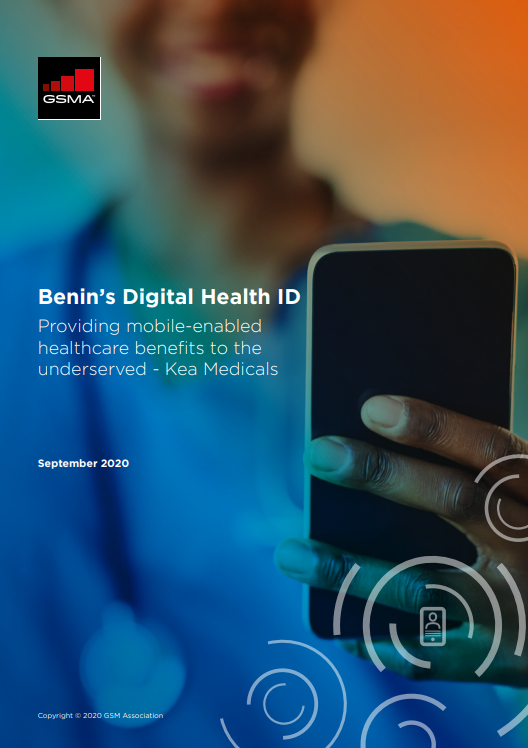A digital health ID is a form of identity stored on a mobile phone used specifically to access health services and medical records. It is a means to improve the quality of healthcare, expand patient access to healthcare and increase insurance coverage, particularly in developing countries like Benin where patient identification and health information systems are often weak. In response to systemic health-related issues in Benin, Dr. Vèna Arielle Ahouansou founded Kea Medicals, a mobile-enabled digital health ecosystem and digital health ID.
From 2019 to 2020, the GSMA, conducted a mixed-methods research evaluation with Kea Medicals, a grantee alumnus of the GSMA’s Ecosystem Accelerator Innovation Fund, to take stock of its progress, consult end-users and identify the steps it should take to strengthen and scale up its digital health ecosystem in Benin and beyond. The GSMA’s evaluation results highlight key lessons for reaching underserved populations at scale through Kea Medicals’ digital health ID:
- Mobile-enabled digital health ID helps to tackle healthcare barriers
- Sympathetic user design helps ensure no one is left behind
- Multi-stakeholder partnerships open access to mobile-enabled services and unlock the benefits of a scaled-up service
- MNOs are critical enablers
- Conducive political environments can accelerate the benefits of digitisation for the underserved
During the coronavirus pandemic, Kea Medicals focused on addressing COVID-19 restrictions with remote functionality and shifted the user journey online and onto mobile. This enables Kea Medicals to deliver remote doctor consultations and health-care to underserved populations at scale, wherever they are located.


